30 years of doctoring with SCK CEN
Academy looks back with alumni
SCK CEN Academy's doctoral programme has been around for no less than 30 years and has already led to 200 degrees. A double reason to celebrate and look back on a great deal of clever, academic work. "At the same time, we are looking ahead as our PhD work continues to contribute to the nuclear expertise of tomorrow," says Michèle Coeck, Director of the SCK CEN Academy.
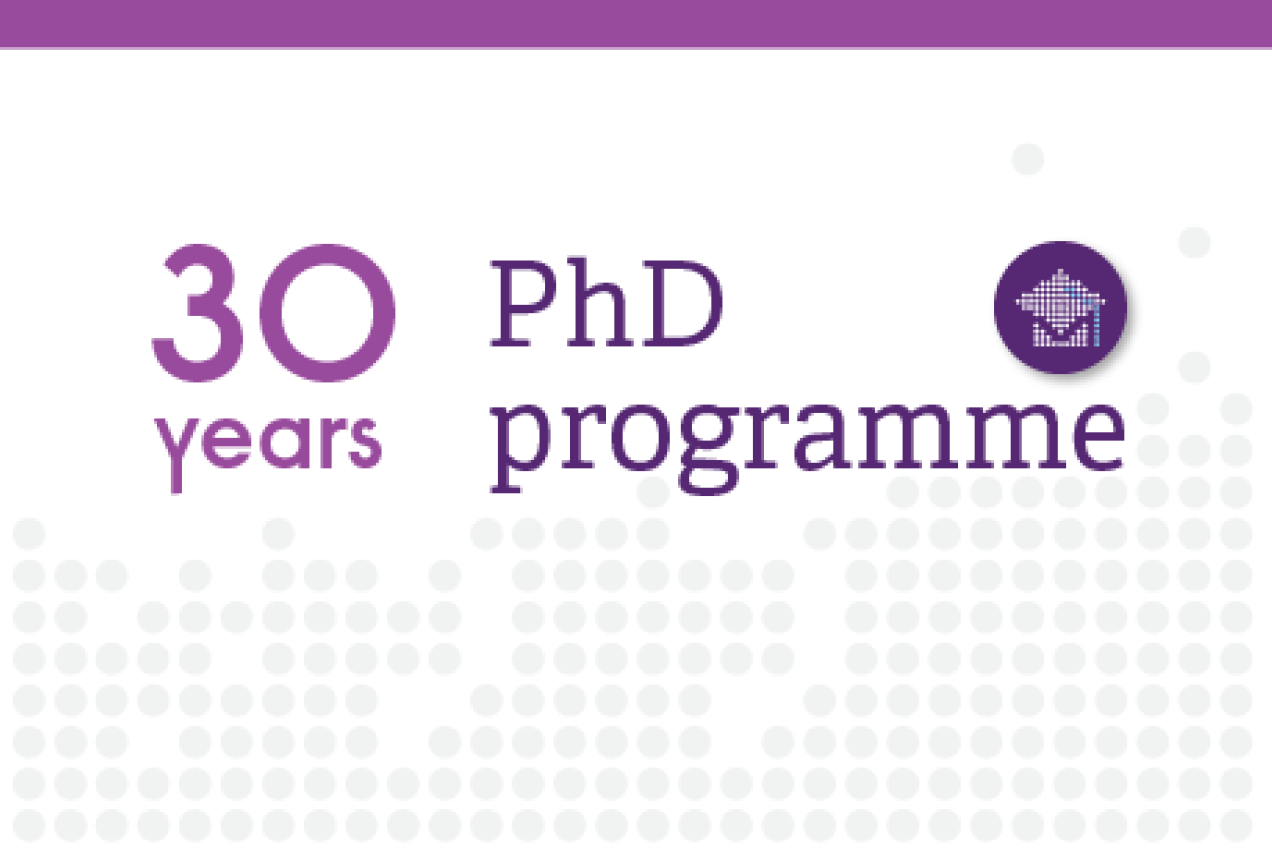
SCK CEN Academy: by and for scientists
Extensive experience in nuclear science and technology, versatile research and innovative facilities: this makes SCK CEN not only a renowned research centre, but also a strong training partner. With our own SCK CEN Academy, we contribute to academic training and organise tailored courses for professionals, both in Belgium and abroad.
This includes mentoring aspiring scientists in their undergraduate, graduate and doctoral studies. To this end, SCK CEN Academy works closely with all the Belgian universities and several abroad. Meanwhile, SCK CEN's PhD programme has existed for more than 30 years.
"Three decades full of interesting and diverse research topics, rigorous selection procedures and intense support from our mentors for new talent... Yes, we're proud of that," says Michèle Coeck.
How are alumni from 30, 20 or 10 years ago doing now?
How is their doctorate contributing to their careers today?
💬 You can read their testimonies below.
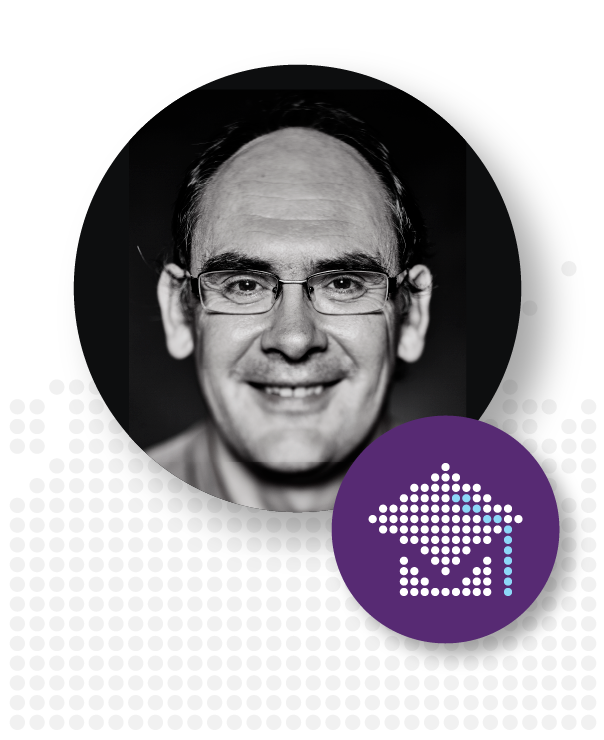
Nicolas Lewyckyj: "I actually wanted to be an astrophysicist, but Chernobyl changed everything."
PhD student at SCK CEN and UC Louvain 30 years ago, 1992-2000 - Mentor: Theo Zeevaart
Do clay minerals in soil retain radiocaesium traces, and if so, do those particles spread to plants and then into our food chain? That question kept Nicolas Lewyckyj busy for no less than eight years. He started his PhD research at SCK CEN in 1991, defending the results in 2000. "Back then, you had 50% contractual obligations. Along with other things that took up much of my time, that meant it took me a little longer to finally qualify."
"I actually wanted to be an astrophysicist, but Chernobyl changed everything," he explains. "Being of Ukrainian descent myself, I was hugely concerned with the disaster. I wanted to do my part to counteract the impact." So he came up with his own research, found a professor who believed in him and got the chance to do a PhD at SCK CEN.
"A route that provided some life lessons," as he says himself. "I will never forget my 1st time at Chernobyl. We drove in on a bus with journalists and fellow researchers. We were so in awe that no-one said a word. It provided some great motivation for my PhD, because I had to do something to try and minimise the effects of the disaster."
Nicolas believed in his research. "You have to, because completing a PhD requires a lot from you. You don't take much holiday, your experiments rule your life and you often have to sort things out. At the same time, you get so much in return. Freedom, creativity and, above all, independence. I'm still reaping the benefits of that today."
Nicolas' tip for future PhD students: "Be rock-hard motivated, surround yourself with people who believe in you, and redo your experiments at least 2 or 3 times before drawing any conclusions. Don't do it for glory, but because you want to mean something to society."
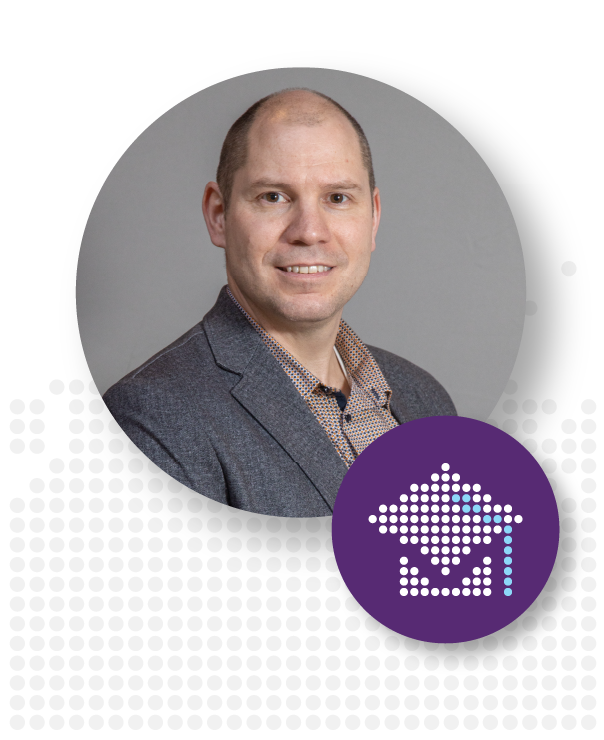
Joris Verheyde: "Thanks to my PhD, I became a good communicator and project manager"
20 years ago, PhD student at SCK CEN and VUB, 2002-2006 - Mentor: Rafi Benotmane & Co-mentor: Louis de Saint-Georges
Joris Verheyde likes to look back on his PhD time at SCK CEN, some 20 years ago now. "My research focused on the analysis of molecular changes – caused by low-dose radiation – in the human body. The aim was to gain a better insight into the effects on genes that could serve as potential targets in the treatment of radiation damage. A difficult topic that involved quite a bit of text and explanation, so I networked and presented on it at full tilt."
It did not stop there. Joris explains: "It was a challenge to explain my results in a clear manner to a very diverse audience. With my doctorate, I wasn't only building up technical skills in radiobiology, but also becoming a good communicator and project manager. Thank goodness, because those skills brought me to the job I love so much today."
"In my current job, I lead a team of more than 75 colleagues who provide training and maintain instruments. Our products and systems are used in biological research and diagnostics, so I still work with and for scientists from the academic, pharmaceutical, industrial and clinical sectors every day. Thanks to my own doctoral experience, I can easily empathise with their roles and work environment."
"I will never forget how much confidence SCK CEN gave me in supporting my doctoral thesis, even before my master's studies were fully completed. A PhD at SCK CEN also gave me a certain freedom to decide where I wanted to focus my research. And the combination of the industrial character of SCK CEN with the academic connection, in my case VUB, helped with using the best of both worlds for your research."
Joris' tip for future PhD students: "The journey is more important than the final destination. A PhD is an excellent form of 'continuous learning'. It allows you to gain knowledge, develop plans and lead your project through from A to Z. Meanwhile, you will also improve your social skills, thanks to interactions with promoters, supervisors, technicians, etc. You need everyone and everything to get your coveted PhD degree."
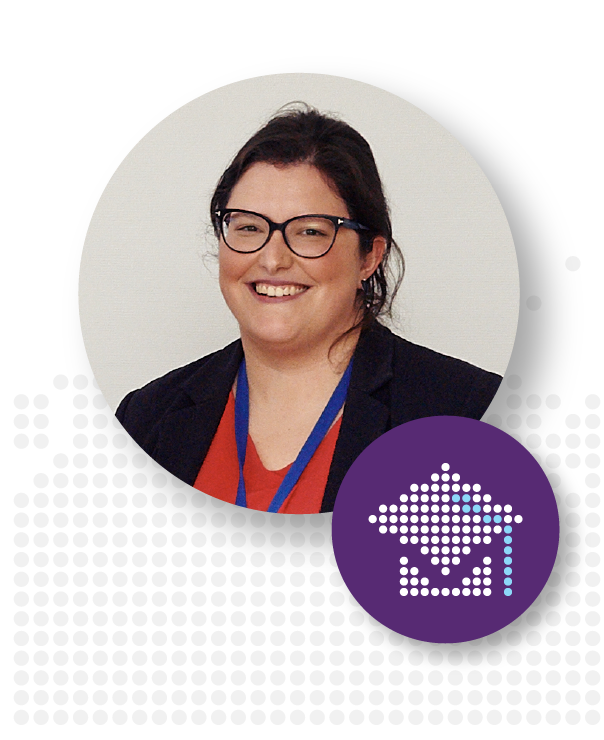
Bo Byloos: "My PhD at SCK CEN launched me to a dream job in space flight."
A PhD student at SCK CEN and Ghent University 10 years ago, 2013-2017 - Mentor: Natalie Leys & Co-mentor: Rob Van Houdt
Back to 2013. This was when Bo Byloos started her doctorate at SCK CEN. "My research focused on the development of a bacterial-based bioreactor. In it, the bacterium 'Cupriavidus metallidurans CH34' releases elements from the minerals in the rock, in my case CH34 and the rock basalt. The research offered some insights that will be used in, for example, the development of life support systems for long space flight missions."
One of the most memorable moments in her doctorate was sending off and analysing samples that were part of a flight experiment in an unmanned satellite. "You spend months preparing so that those samples can go along with a launch into space. The moment when they finally come back and you're ready to get back to work on them is unforgettable. I'm very grateful to SCK CEN and Ghent University for the opportunities and memories."
After her doctoral defence, Bo didn't wave goodbye to the 'space' theme. On the contrary! It was her way into a continued career in the industry. "It was great to see the European space world up close during my PhD. As a researcher, I got to know the processes – from testing, to approval and launch of experiments at ESA – far better. And as a colleague, I learned to work better together in a national and international context. Those experiences helped ensure that I'm still working today at Luxembourg Space Agency (LSA) as a Project Officer – Exploration and Education."
Space has always been a fascination of Bo's, but having a special interest alone will not get your career off the ground. A job also requires a whole set of 'soft skills' in a professional context. As Bo explains: "My flexibility is one of my strengths and I attribute that to my doctoral experience. That's about adapting research or work quickly, but certainly also finding a good balance between doing things autonomously and asking for support and collaboration."
Bo's tip for future PhD students: Choose a topic that you yourself are very enthusiastic about, but also make sure you have a good relationship with your mentor, other PhD students and colleagues at the lab. When you encounter inevitable setbacks and difficult moments, those people are there to reinvigorate you and enhance your PhD research.
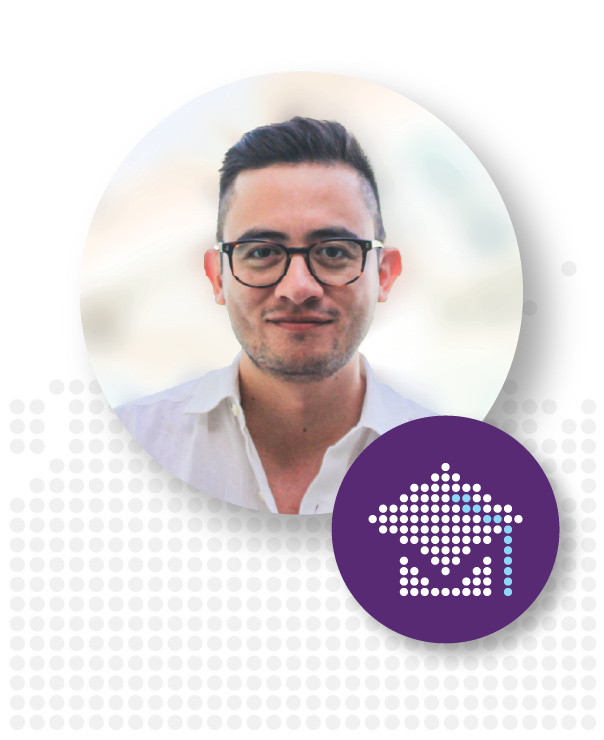
Jesus Alberto Casillas Trasviña: "I presented at Princeton University and won an award there. Wow!"
A 2022 PhD student at SCK CEN and Ghent University, 2018-2022 - Mentor: Bart Rogiers & Co-mentor: Koen Beerten
The COVID-19 pandemic: that's not what you're looking for when you're doing your doctorate. So it was overwhelming for Jesus Alberto Casillas Trasviña. In 2018, he joined SCK CEN as a student from Ghent University. He successfully completed his doctorate in 2022. The subject of his research? Groundwater flow and transport in Flanders in the context of the Belgian programme for the geological disposal of radioactive waste. "I'll never forget that time," says Alberto.
"COVID-19 didn't make it easy for me as a PhD student. It required some insane organisational skills! Besides that, I was also constantly having to find ways to be even more productive and optimise my time during my PhD, as well as to stay physically and mentally healthy. My skills received an incredible boost in the project management area."
It was a wild roller-coaster, but Alberto looks back on it happily: "In addition to conducting my research, at SCK CEN I also had the opportunity to go to conferences, to present my plans and results orally to large groups and, of course, to network. The icing on the cake was my presentation at Princeton University, after which I also managed to win the best presentation award. Wow – that was definitely a special moment."
Alberto's tip for future PhD students: Learn not to fight a losing battle. Also, take some time off. Learn when to say "no", but also when to say "Let's move on, we can't be stuck on this forever." And above all, don't forget to take care of yourself: drink plenty of water and find some ways to stay mentally and spiritually healthy!
Interested in pursuing your own doctorate through SCK CEN?
Looking for any more information or available topics?
Click here for more information.
Related articles
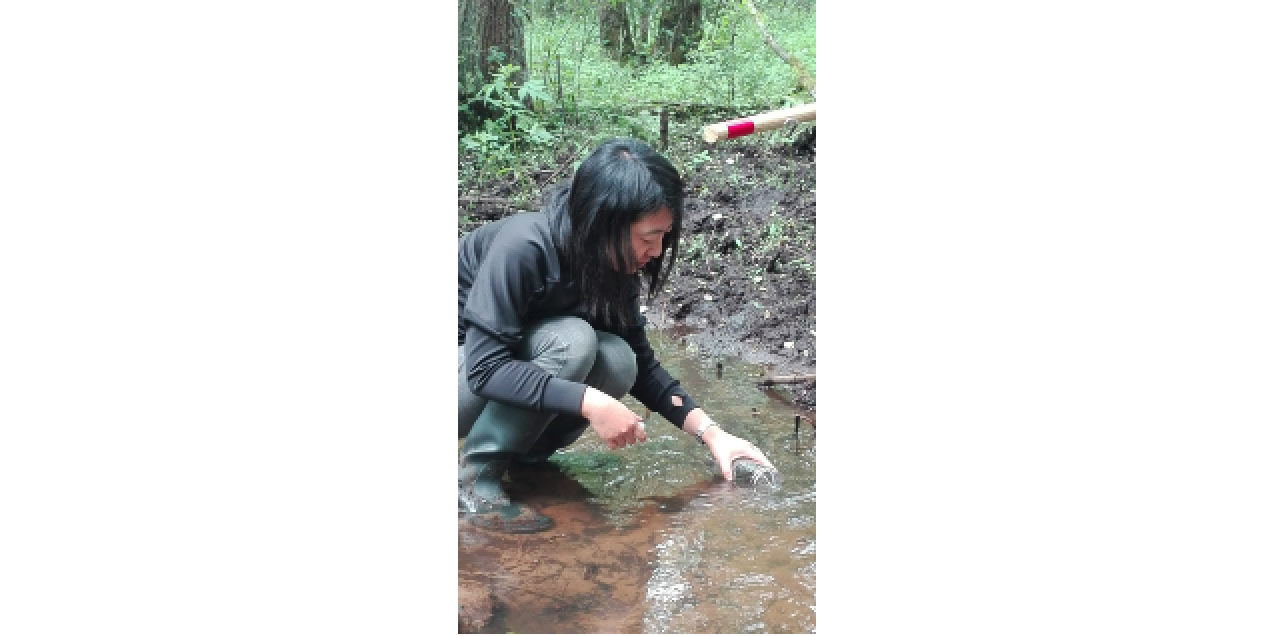 25 March '24
25 March '24 22 March '24
22 March '24- 19 December '23